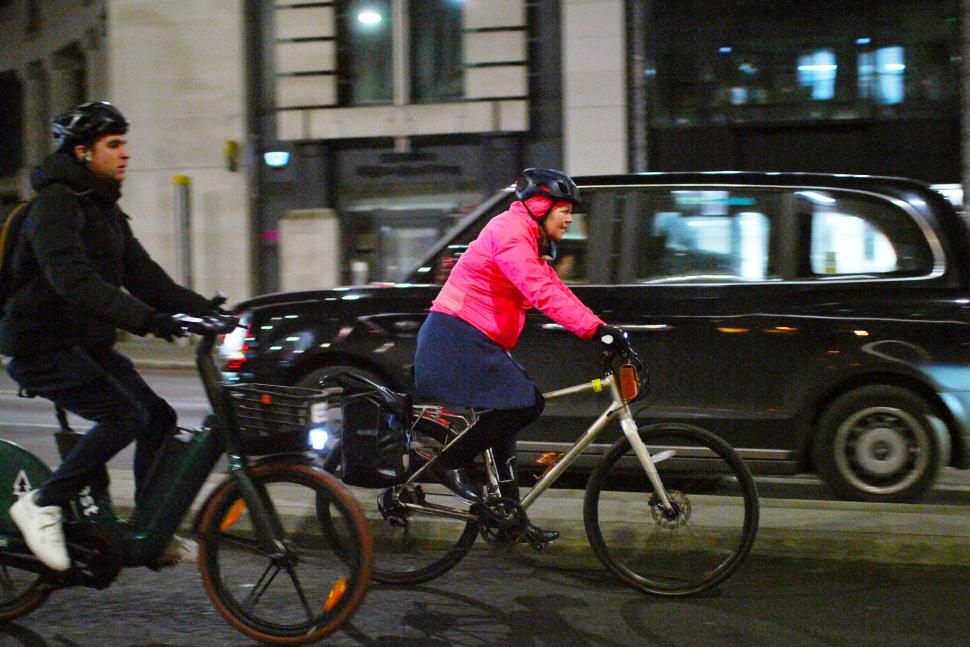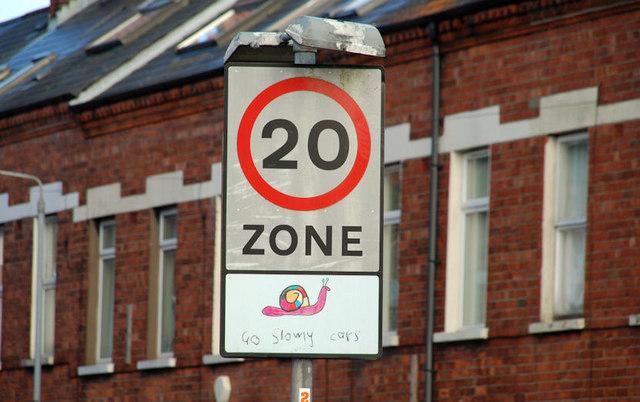- News
- Reviews
- Bikes
- Accessories
- Accessories - misc
- Computer mounts
- Bags
- Bar ends
- Bike bags & cases
- Bottle cages
- Bottles
- Cameras
- Car racks
- Child seats
- Computers
- Glasses
- GPS units
- Helmets
- Lights - front
- Lights - rear
- Lights - sets
- Locks
- Mirrors
- Mudguards
- Racks
- Pumps & CO2 inflators
- Puncture kits
- Reflectives
- Smart watches
- Stands and racks
- Trailers
- Clothing
- Components
- Bar tape & grips
- Bottom brackets
- Brake & gear cables
- Brake & STI levers
- Brake pads & spares
- Brakes
- Cassettes & freewheels
- Chains
- Chainsets & chainrings
- Derailleurs - front
- Derailleurs - rear
- Forks
- Gear levers & shifters
- Groupsets
- Handlebars & extensions
- Headsets
- Hubs
- Inner tubes
- Pedals
- Quick releases & skewers
- Saddles
- Seatposts
- Stems
- Wheels
- Tyres
- Health, fitness and nutrition
- Tools and workshop
- Miscellaneous
- Buyers Guides
- Features
- Forum
- Recommends
- Podcast
news
BBC under fire over programme about "how best to share" the roads, titled... "Should cyclists stay in their lane?"; Cycling campaigns urge government to "hold their nerve" on 20mph speed limits + more on the live blog
SUMMARY
 Cyclists in London male and female in cycle lane - copyright Simon MacMichael
Cyclists in London male and female in cycle lane - copyright Simon MacMichael19 April 2024, 09:06
BBC under fire over programme about "how best to share" the roads, titled... "Should cyclists stay in their lane?"
At 12pm on BBC Radio 4 is the latest episode of 'AntiSocial' with Adam Fleming, a show that is self-professed "peace talks for the culture wars".
"In an era of polarisation, propaganda and pile-ons, Adam Fleming helps you work out what the arguments are really about," the BBC's website promo explains. Today, the topic is — yep, you guessed it — cyclists, a producer for the show suggesting it will be about "the debate between cyclists and motorists on how best to share" the roads. So, what is this "peace talks for the culture wars" episode called then? Erm... *checks and double checks notes*... "Should cyclists stay in their lane?"
In more detail, the episode description adds: "Cyclists shaming drivers online, fights over bike lanes, and the politics of pedal power.
"TV and radio presenter Jeremy Vine posts a video of a car failing to give way to him while he's riding a penny farthing. Cue angry comments hurling insults and telling him he'd be safer in a car — and sympathetic responses from fellow cyclists. What does the Highway Code actually say about priorities on the roads? What are the stats on cyclists and safety? And how and why has cycling become such a toxic topic?"
Unsurprisingly, the title of the episode has raised some eyebrows this morning (as has the producer's numerous messages to a wide array of potential guests, from anonymous anti-LTN (low-traffic neighbourhood) social media accounts to newspaper columnists responsible for such an award-worthy anti-cycling bingo full house as the one below...)
Earlier this week, we accepted an invitation to go on the show, an invitation that has since gone cold. But don't fear, live blog readers, thankfully, we were promised the show aims to take a step back to explore the facts, the context, and the differing views in detail, all in the hope of cooling things down, and is the opposite of the shout-y slanging matches often seen elsewhere during cycling discussions. We've got high hopes...
In fairness, during the social media dissection of the title, the Richmond coordinator for the London Cycling Campaign, Tim Lennon, said he's listened to the show before and it does tend to be a "pointing out the actual facts, rather than just being a two sides thing", so who knows? Maybe we will all be quite impressed come 1pm.
For now however, much of the online discussion is about the episode name, The Ranty Highwayman calling it "unhealthy" and "the type of show that gets people hurt on the roads".
Not just Charlotte, he's also reached out to well known anti ltner thefox. Just the title alone shows there's zero attempt at proper reporting around this. pic.twitter.com/1kv4VcePNb
— CykelTony (@tony_eh) April 19, 2024
We've been here before with cycling coverage on the BBC and how it's communicated with a title. Back in November 2022, Panorama aired an episode, which despite doing a good job of showing just how vulnerable people riding bikes can be, was called "Road Rage: Cars v Bikes", something the presenter we spoke to at-length during and after filming explained was a decision out of their hands, made pre-broadcast.
Some of that TV offering was actually solid enough, so maybe we'll be back in the same position later today with "Should cyclists stay in their lane?". Either way, from what we've seen people saying online, hopes aren't high.
19 April 2024, 12:03
Reaction to BBC Radio 4 AntiSocial... "Should cyclists stay in their lane?"
For those of you who weren't able to tune in, BBC Radio 4's AntiSocial episode looking at cycling (and questionably titled "Should cyclists stay in their lane?") at least delivered on its promise to avoid being a slanging match, the at-length format and calm discussion instantly improving the usual 'five-minute no holds barred shouting contest' for cycling-related discussions on TV or radio.
Lauren O'Brien represented the cycling side of the discussion, earning praise from those who listened for her patient explanations about why a cyclist might not use a cycle lane, how cycling could be made safer and various other topics. One listener concluding she "pretty much had a monopoly on being reasonable in that discussion".
The show also heard from James Woudhuysen, a journalist and visiting professor at London South Bank University. Among other things, he urged for greater Highway Code knowledge and viewing all road users in a more humanising way, rather than through respective transport tribes. Admittedly, those points came around plenty of unchallenged "war on the motorist" claims, an assertion that "snooping" camera cyclists are "very dangerous for the whole fabric of society", comments about empty cycle lanes, and a bizarre anecdote about having "nearly been run over by lots of women in very tight Lycra [... but] nobody complains about their testosterone".
That last one earned pushback from host Adam Fleming about why what they were wearing is relevant. Again, in fairness, Fleming was quick to question some of the claims made and the show was interspersed with a lawyer explaining the 2022 changes to the Highway Code, an academic giving a history of cycling in Britain, and stats from a producer. There was certainly far more work and research than your standard Good Morning Britain or Talk TV cycling segment that we're all too familiar with by now, but did it go far enough? Here's some of the early reaction...
I thought you did very well and was disappointed that your debating partner was allowed to get away with generalisations, straw man arguments and untruths without challenge.
I think if @adamfleming wants to have these type of people on he should be prepared to challenge them.— Cllr Liam Calvert 💚 (@LiamCalvert) April 19, 2024
noblecyclist: "Please challenge this guy when he mentions the fictitious 'war on cars'. There is no war on cars."
> 'The War on the Motorist' deconstructed — looking at the truth behind the myths
Plenty of discussion around the multiple minutes spent questioning why cyclists might not use a cycle lane...
Ian Cumming: "Why might I not be in a cycle lane? It may be strewn with litter, obstacles, or busy with slower cyclists and/or pedestrians. Given that I ride at 20-30mph and sometimes faster — the road seems like the safest and most considerate place for me to be."
#BBCAntisocial @adamfleming
Why don't cyclists use cycle lanes? pic.twitter.com/zXWDEwuDXr— Drew (@drewsnx) April 19, 2024
Not great feedback for guest selection (although we're yet to see a complaint about one of the guests... no prizes for guessing)
Chris Whear: "Who is the guy, James? He is arrogant and biased. As a driver of over 50 years the last 10 have seen terrible driving standards and rage from car drivers (and some other groups) towards all road users. If he doesn't see that they [cyclists] are vulnerable there's no hope!!"
#bbcAntisocial
This man is ridiculous.— Bjbrightwell (@bjbrightwell) April 19, 2024
And before I forget, a bit more reaction to that title, cycling campaigner Ruth Mayorcas calling it "utterly disgraceful".
"Every day my life is at risk from drivers who simply do not understand cycling as utility/modus operandi — and this simply compounds it," she said. "Why don't you get some lived experience @simontulett (one of the show's producers) and come cycle with me?"
Anyone get a chance to listen in? What were your thoughts? Better than the usual 'broadcast media does cycling' fare, but what did you think? The full episode is available here...
19 April 2024, 15:58
Happy Friday!
It's the weekend...
19 April 2024, 15:48
Bianchi presents the cycling world an "unprecedented experience"... to view a holographic Specialissima RC model with Apple Vision Pro headset
We're sensing a good ol' caption contest...
As part of Milan Design Week, Bianchi has offered the cycling world (or those in striking distance of the Italian city, at least) an "unprecedented experience" to view its Specialissima RC road bike in holgraphic form through the power of the Apple Vision Pro headset.
Bianchi says it allows viewers to see a visualisation of the complete bicycle in 3D, "even exploding into its components set in the physical space where the visitor is located". On a completely tangental non-cycling point, if anyone fancies a Friday laugh, look up that time Ronnie O'Sullivan tried to play virtual reality pool with a headset like that. You can't lean on the table, Ronnie, it doesn't exist. Anyway, back to cycling...
"Bianchi's vision is constantly focused on the future and seeks to integrate the most innovative technologies," explained Claudio Masnata, marketing and communications manager at Bianchi. "Thanks to the collaboration with Zampediverse in this experiment, we can reduce the boundary between physical and digital spaces by offering an experience that didn't exist before and by laying the groundwork for new product presentation methods."
19 April 2024, 14:05
You're completing an indoor trainer session when... thousands of football fans spot your efforts...
Excellent pic.twitter.com/iTmW3rQbgL
— Nooruddean (@BeardedGenius) April 19, 2024
19 April 2024, 13:41
"This is one of the very worst storylines Neighbours has ever run": Australian soap horrifies viewers with cyclist "serial pooper" plot
On to the day's biggest news story. Neighbours, the Australian soap which returned to screens last year, has horrified its viewers with an ongoing plot about a man who can't control his bowels when cycling. I hope you've finished your lunch...
Could Karl really be the serial pooper? 💩 pic.twitter.com/8ikQ5bYnfe
— Neighbours (@neighbours) April 18, 2024
Apparently the plot is inspired by the real-life "poo jogger" case that News.com.au claims gripped the country in 2018. Anyway, apparently someone is covering the lawns of Erinsborough and the community is shocked. Someone on the writing team's surely just a huge pro cycling fan, right?
The plot hasn't gone down well with Neighbours fans, the show inundated with comments about it being "disgusting".
"This is one of the very worst storylines Neighbours has ever run. Just disgusting," one said.
"This was funny the first time, but just gross now, as a Dr he would know the health implications of doing this in public places," another said.
19 April 2024, 12:46
Hit-and-run driver without licence who left cyclist with multiple injuries jailed for a year and disqualified from driving for four years
The cyclist suffered multiple fractures and other injuries, and died nine months after he was hit by the driver who already had six previous convictions for 16 offences. Read more...
19 April 2024, 10:58
QOM (Queen of the Maternity Ward)
thinking about this woman who recorded this as a workout on strava pic.twitter.com/i0Z2bjVI3C
— “paula” (@paularambles) April 19, 2024
19 April 2024, 10:35
Kona Bicycle's parent company appoints new CFO amidst fears of "cost-cutting measures" after brand pulled out of major cycle show at last minute
The topic of yesterday's company "town hall" meeting remains unknown...
19 April 2024, 10:12
"They were very happy with that": Tom Boonen bribed Qatari customs agents with nude magazines
A bizarre story next. Classics legend Tom Boonen has revealed how at the 2004 Tour of Qatar he got into (and out of) trouble due to some nude magazines at the airport. Speaking to Sporza's Wielerclub Wattage podcast, Boonen explained that due to dodgy hotel internet, he and his teammates often bought magazines of a certain genre at Brussels airport to keep them company when away from home.
"Before the flight to Qatar I bought a car magazine, the P-magazine, a Ché, a Playboy and some other booklets," Boonen said (we'll look past the strange amount of detail for a 20-year-old shopping haul). "When we landed in Qatar, we had to wait a while for the luggage. I had left my backpack with magazines with the teammates and was waiting at the baggage carousel.
"Nick Nuyens wouldn't have thought of anything better than taking one out of my backpack and leafing through it. I already had an idea that the customs officers were watching us. At a certain point I saw one of those customs officers say to a fellow customs officer: 'Those men are looking at a book and there are naked women in it'."
Threatened with punishment for the magazines, Boonen says it suddenly dawned on him that a mutually beneficial agreement could be found... "Those customs officers accepted those magazines and were very happy with them," he explained.
19 April 2024, 08:48
Pinarello marks its return to cross-country mountain biking with the Dogma XC
Our mates over at off-road.cc have everything you need to know about Pinarello returning to the cross-country mountain bike scene, officially unveiling the Dogma XC after its race-winning appearances in 2023 under Tom Pidcock and Pauline Ferrand-Prévot.
> Pinarello marks its return to cross-country mountain biking with the Dogma XC
Described by Liam as "cross-country mountain biking's worst-kept secret", given its high-profile appearances last year. He also got the chance to take the bike for a spin and gives all his thoughts in a first ride review.
19 April 2024, 07:58
"Lower speeds save lives": Cycling campaigns urge government to "hold their nerve" on 20mph speed limits
Cycling UK and Cardiff Cycle City have urged the government to stick with 20mph speed limits, after Transport Secretary Mark Harper yesterday said the speed limit zones should "only be used in the right places" and that "it must be frustrating for those Welsh drivers ignored by Labour and for Welsh taxpayers who have to pick up the bill".
That reaction came after Ken Skates, Wales' new transport minister, had suggested there will be "changes" on the default 20mph speed limit policy.
Gwenda Owen from Cycling UK said: "The Welsh Government's own survey showed that four out of five adults in Wales would support a 20mph speed limit in their neighbourhoods. Clearly the vast majority of people recognise slower speeds are good for communities, the environment and the wellbeing of children. It's also the right move to increase the appeal of healthier alternatives to driving.
"Lower speeds save lives, and 20mph is a reasonable expectation where people live, work and play, not just outside schools and hospitals. The reality is, children, older people and other vulnerable groups aren't tethered to single stretches of road outside schools and hospitals. If we enable more people to travel by bike and foot, they need to feel safe doing so. Lower speed limits are an important part of creating towns and cities where people have real choices in the way they travel.
"Local authorities are able to make exceptions to the default 20mph in line with set criteria. However, we recognise that there have been differences in the way some councils have applied the criteria and welcome the review of the guidance. The Welsh Government did the right thing, rather than the easy thing, in introducing the 20mph default, and we're urging Ministers to hold their nerve for the good of Welsh communities."
Likewise, Cardiff Cycle City released a statement asking the Welsh Government to "stand firm on 20mph" and stating that the campaign was left "disappointed and alarmed" by Skates' assertion that there would be changes to the 20mph policy.
"In our view, there is no need to change the policy," a statement said. "Local authorities already have the power to adjust speed limits where appropriate. It appears that Mr Skates has succumbed to pressure from a tiny but vocal political minority. We hope that he will put people before politics and leave this popular and effective policy in place, safeguarding the health and wellbeing of all members of our communities."
Cardiff Cycle City statement in response to @KenSkatesMS recent announcement on the 20mph policy. pic.twitter.com/LQemrgfpOz
— Cardiff Cycle City | Dinas Feicio Caerdydd (@CdffCycleCity) April 18, 2024
Dan is the road.cc news editor and joined in 2020 having previously written about nearly every other sport under the sun for the Express, and the weird and wonderful world of non-league football for The Non-League Paper. Dan has been at road.cc for four years and mainly writes news and tech articles as well as the occasional feature. He has hopefully kept you entertained on the live blog too.
Never fast enough to take things on the bike too seriously, when he's not working you'll find him exploring the south of England by two wheels at a leisurely weekend pace, or enjoying his favourite Scottish roads when visiting family. Sometimes he'll even load up the bags and ride up the whole way, he's a bit strange like that.
Latest Comments
- Chris RideFar 3 hours 13 min ago
I know that in independent tests on 10 and 11 speed chains, the SRAM chains always came out bottom in terms of drivetrain efficiency. Lots of...
- quiff 3 hours 19 min ago
The comparison was between two things never intended to be used on a bike.
- perce 3 hours 49 min ago
You could get knocked down at midnight and the jury would believe a driver who said the sun was in his eyes.
- Simon E 4 hours 4 min ago
We'll have to disagree. It's as ugly as f..k. You can try putting lipstick on a pig but it's always going to be a pig....
- chrisonabike 4 hours 37 min ago
Well, send us a review when you've cycled it!...
- kingleo 5 hours 7 min ago
Two things are certain about the anti-cyclists, they are stupid and make up facts.
- KDee 5 hours 26 min ago
Funnily enough, my experience with Wahoo TCKR is that when that needed a new battery, it would also go in the bin. The battery locating tabs would...
- Backladder 5 hours 59 min ago
Since the driver used similar language it in not "likely" that he was caused harrasment alarm or distress by having it returned to him. (IANAL)
- underworld99 9 hours 50 min ago
Some more local knowledge :...
- eburtthebike 11 hours 6 min ago
“There is a road safety emergency in our region. As Mayor, I’m committed to tackling this issue."...










Add new comment
70 comments
"...why has cycling become such a toxic topic?""
I'm coming to the conclusion that it's because those people have finally realised that it's not acceptable to be racist, homophobic etc. anymore, and need some other outlet for their irrational hate.
Does anyone have the KSI stats for penny farthings for the last 5 years, I suspect they are lower than for these so called Safety bicycles!
I listened to the BBC R4 prog "Should cyclists stay in their lane" and it was pretty much what you'd expect from the BBC, a well-informed cyclist vs a driving gammon, with the anti-cycling bingo card full after fifteen minutes. And of course a presenter used the term accident, not collision.
I'm sure one day the BBC will have a factual look at cycling, properly examining the benefits, but probably not this decade, or the next, but then, I and others have only been asking them for just that for four decades at least: so no rush.
It's been said many times, the BBC is institutionally anti-cyclist, and although this prog was to some extent balanced in that they did have someone who knew the arguments about cycling, the title and the other guest made it clear that they were biased. The number of articles they've had about driving which were totally biased must run into tens of thousands, but, hey, that's balanced.
Cycle lanes are very expensive. Said by the Dutch bloke and the presenter. No challenge and no concept of how much a road or roundabout costs.
War on motorists asserted with no challenge.
Of course he had to finish with the words road tax.
You shouldn't need any cycle lanes at all, and wouldn't do if people could drive safely.
The anti-cycling guy - with a full set of unevidenced tropes and some (frankly) lies - was a Reform UK (Brexit Party) candidate in the 2019 election.
BBC did not remark on it.
Why should governments be told "to hold their nerve", the democratic process was followed, in Wales, with a 2 year consultation period. These attacks are anti-democratic (and westminster knows this), this is not an attack on 20mph limits and a few noisy right whingers, it's a westminster attack on the right of Wales to make democratic decisions.
Fact 1. The 20mph limit was clearly stated alongside the no pavement parking in the manifesto.
Fact 2. There was a 2 year consultation period (right whingers don't like this).
Fact 3. It is not a dictatorship, right whingers just don't like it, or the pavement parking ban would have been implemented too.
Fact 4. Right whingers are just noisy children that shout, bully and scream until they get their way.
If this gets changed I demand that Brexit is reversed.
Right whingers moaning about 20mph limits, cyclists and 'woke' are numbskull snowflakes IMHO.
If there’s anything in nominative determinism, Ken Skates should be great for active travel.
I understand the intuition that a lower speed limit is safer. However, when a council measures a non-compliance rate of 99.4% as they did in Rogiet, that's not a few right-wingers, that's speed limits being brought into contempt. And the measure is advocated by the very people speed limits are meant to protect, when speed limits are set properly you'll find it's the same people who break speed limits are the most likely to tailgate, run red lights and generally drive like twats, you only draw attention away from them by prohibiting the behaviour of people doing speeds well below 30mph even when clearly safe to be doing so under the prevailing conditions.
In some cases lowering a speed limit can make a road safer and in others raising it can. The DfT stated that raising "unrealistic" speed limits has little to no effect on average speeds and may even cause speed to drop, while giving vulnerable pedestrians a more realistic expectation of the actual traffic speeds causing them to take more care while crossing. There either seems to be the expectation that people only drive 5 or 10mph over the posted limit or people simply need time to get used to it. Traffic speed is induced far more by the a road's design than by speed limits, limits are most effective when they match the design of the road or are set just slightly below the design speed.
Think we've been here several times now! I would agree things are not black and white. But the effect in Wales has been measurable, shouty voices regardless.
This appears to be the same old viewpoint as we've had for decades and hasn't advanced the plot. Plus something ideological about "but contempt for the LAW!" For speed limits - sorry to inform - that horse has long bolted... I think we're at a low ebb for enforcement on the road. Again while "police it better" is one of the less effective interventions, if there is *no* feedback for lawbreaking (no fear of being caught) few systems are going to work...
I think some adjustments are acceptable but they should actually be *building* on this and working on more safety measures (eg. New Road and street designs going forward, more active travel measures in tandem).
The idea that higher speed limits are "giving vulnerable pedestrians a more realistic expectation of the actual traffic speeds causing them to take more care while crossing" is new to me. Sounds like that could use some evidence!
I agree as usual with best practice being to make the infra guide behaviour eg. design streets and roads to cue behaviour such as speed. Strangely though wherever this is mentioned a *plan* for doing so is not. Even enthusiasm for overhauling existing rules so new roads and street designs change seems absent, never mind how to persuade the "hard-pressed motorist" to supply the extra billions to retrofit this to all our existing infra.
I remain unconvinced that raising the speed limit will make things safer or even (IIRC from one complaint) lower speeds(!)... However again there *is* direct evidence - even from Wales (as covered by the Beeb, plus evidence from other studies) - that just changing the numbers on signs often does make a difference. That is slightly surprising but it is real.
Unfortunately the Wales experiment seems to be somewhat reduced now.
A sad state of affairs that Wales didn't have didn't have the cojones to stick with the original implementation of the 20mph plan, unlike Edinburgh which has not only almost entirely done so, but has expanded those plans since they came into force. Roll on the 'war on motorists' if thats what the motons insist on calling it.
Edinburgh is a nightmare to drive around anyway. Who'd want to take their car into the centre?
Well - I drive there seldom but actually to drive *around* it (outside rush hour - agree that can be a different story) isn't a drama (because ring road). Visit parts round the edges and you'll find they're "car towns" (eg. Portobello, bizarrely).
Too much traffic, but still not enough to win any "war on the motorist".
My recollection is of it being a parking nightmare to the point of no one knowing where, or how to get to, a car park that was clearly marked on Google Maps and much the same for the hotel I stayed where the car was left on the street overnight some 2-300m away. Most certainly not car friendly in my book.
I kind of want to say "Glad to hear that!"
There are certainly parking complaints. However parking 200m from the hotel doesn't sound like oppression exactly either. OTOH there are places (like where I used to live) where I'd be concerned to leave a car overnight - or even for an hour.
I guess it's expectations - to what extent do people visiting a "historic city centre" (with "narrow cobbled streets" even) expect to drive? (Lots of places - some even in the UK - I wouldn't think to do so). To what degree should be accommodated?
There's also the "how". Although the area of flats I live in has a fair amount of parking it's behind the flats. So there's a constant presence of people "justing" and delivery vehicles - on the pavement and cycle path. (This is several miles from the centre - in general there is also plenty of "casual" parking). Should there be an allowance for that (probably )? But if so how do you stop those spaces getting filled by those who just want to save walking 50 metres or can't be bothered to check a map / drive round a corner?
Wales did put out a report stating that average speeds decreased by 4mph however I think is looking at all speeds. So if one car goes at 20 and there's a line of 9 cars following behind it counts as 10 cars going 20mph. Then you have the problem of vehicles bunching together, which increases accident risks. It's not just an increase in vehicle speeds that increases accident risks, it's if your speed differs substantially from the mean speed of traffic.
The Atkins study looked specifically at the reduction in speeds of free-flowing vehicles and measured it at 1.3mph. Also, most schemes that looked at are in towns and cities that kept a network of main roads at 30mph while in Wales you now have it 20mph on side streets and much wider main roads.
Look how they didn't exempt Lloyd George Avenue even though that's meant to bypass Bute Street and now they both have the same speed limit. The exceptions in Cardiff are so few and far between it makes a mockery of speed limits.
Even if average speeds go down that says little about the 95th or 99th percentile of speeds, these are the people who are overwhelmingly the most likely to do harm.
The most recent example of a lowering of a speed limit causing speeds to increase was Alcester Road in Stratford, after the limit was lowered from 40 to 30mph the average speed went up by 1mph, the 85th percentile speed went up by 2mph and the 95% percentile speed went up by 1.3mph.
I think it should be intuitive as to why if the limit goes up but actual speeds stay substantially the same, then the road will be safer. I've seen roads with 40mph limits report lower average speeds than some roads with 20mph limits. And the compliance statistics from some urban 40-limit roads are almost the mirror opposite of the worst 20-limits, with compliance levels as high as 98-99%, compared to less than 1% compliance and a higher average speed. This is where the safety aspect becomes obvious. People are generally more likely to follow and make an effort to follow rules they perceive as reasonable. Look up the Pygmalion Effect.
That's not to say urban roads should have 40mph limits; it was originally applied to higher-standard roads with 85th-percentile speeds over 35mph.
You will probably find that my exempting more main roads means that 20mph limits will work better on roads where they do make more sense.
If you want to look at random speed limits, better you look at the english implementation, not Cymru. Now that's random and most certainly not a measure we should aspire to. Given the confusion I'm led to believe the english have with bilingual signs, I struggle to see how they will cope with the ever changing urban speed limit signage in england, probably explains why many cities see people sit at 20mph... Just in case, like.
We have many (25-30) years of data showing the effectiveness of 20mph speed limits for improving rad safety.
There is a ROSPA Factsheet collating a lot of it.
There appears to be a 100% compliance rate in reducing speeds, one of the objectives, and the majority seem to be sticking to the limits https://www.ukroed.org.uk/wales-speed-compliance-rates/, but you may be able to link alternative data.
I'd be interested in seeing how increasing a speed limit makes roads safer for anyone not in a vehicle (car, van, truck, etc.).
I stand with all of my original statement.
Do you live in the Netherlands ?!
Maybe a clickbait title will drag in a few anti-cyclist trolls and then ply them with facts. But most anti-cycling trolls probably do not know what Radio 4 is.
Forget culture wars, that's more like a call for an arms war - "They're driving cars so I'll trade my bike in for a car so I'm safer." "They've all got cars so I'll get an SUV - bigger is safer". "They've all got SUV so I'll get a Humvee - bigger is safer". "They've all got bl00dy Humvees - I'll buy an armoured personnel carrier" etc etc etc.
I did some extracts from a twitter thread and put it somewhere in drivers and their problems. Basically as you put but ended up with a star destroyer and death star !
I imagine that the Star Destroyer isn't very convenient for getting to the shops - very few parking spaces a mile long…
You reckon? I'd suggest that creating a moderately sized parking space should be a minor challenge for something capable of annihilating entire celestial bodies.
Well, you can always find a parking space, but then the shops aren't there any more...
Since when have logical considerations like that been relevant?
It may have been a long time ago in a galaxy far, far away, but that doesn't change logic. Or are you saying the Dark Side is seriously deleterious to reasoning as well as morality?
Pages